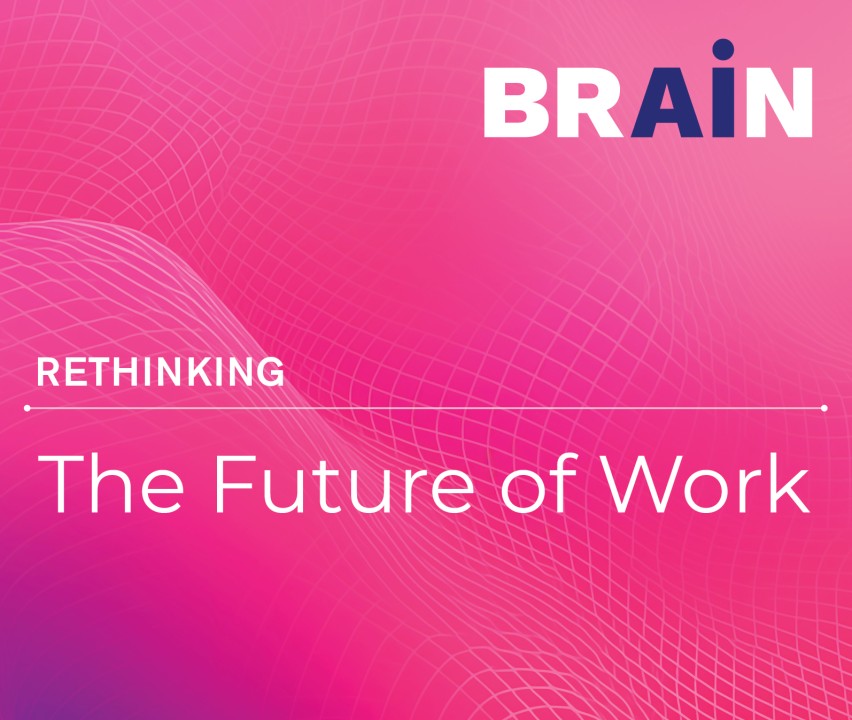In a world where the constellations of economic and social paradigms are in relentless flux, the Bahá’í teachings offer an auspicious lens through which to confront the intricacies of the modern workplace. The essence of work, as elucidated in these teachings, transcends mere economic necessity; it is an instrument for spiritual elevation and the construction of a unified society. This article endeavors to explore this profound perspective, articulating a Bahá’í-inspired vision for the future of work.
To embark on this exploration, one might liken the workplace to a vibrant tapestry, wherein each thread, symbolizing individual contributions, weaves together to form a cohesive yet diverse whole. Such a metaphor serves to remind us that individual worth is inextricably linked to the collective fabric of humanity. The Bahá’í writings elucidate that work is a form of worship; thus, it is incumbent upon individuals to engage in their professions with a sense of purpose, commitment, and divine intention.
Prominent within the Bahá’í discourse on work is the principle of service. Work is not merely a vehicle for personal gain; it is, at its core, a means of contributing to the welfare of others. This ethos reshapes our understanding of productivity. In contrast to the prevailing corporate dogma that often prioritizes profit over people, a Bahá’í-influenced workplace cultivates an environment where collaboration and mutual support reign supreme. Here, the corporate ladder transforms into a network of relationships, where every individual ascends through the strength of their collective contributions rather than through competition and rivalry.
Furthermore, the Bahá’í teachings emphasize the importance of diversity and inclusivity in the workplace. As humanity evolves, so too must our workplace norms. The recognition of the inherent dignity and worth of every person fosters an environment ripe for innovative thoughts and solutions. Bahá’í principles advocate for the inclusion of individuals from varying backgrounds, ages, and abilities. Such pluralism not only enhances creativity and problem-solving but also nurtures a sense of belonging. In this context, an organization becomes a microcosm of global society—a vibrant ecosystem where diverse contributions flourish and harmonize.
The concept of consultation is pivotal in the Bahá’í approach to organizational structures. Unlike traditional hierarchies that can often stifle creativity and expression, consultation is an empowering process wherein individuals collaboratively engage in discussions, guided by objective truth rather than personal ego. This form of interaction fosters mutual respect, encourages a diversity of opinions, and empowers employees to contribute to strategic decision-making. When individuals feel that their voices are valued, they become more invested in the success of their organization, thereby enhancing both employee morale and productivity.
Moreover, the Bahá’í teachings articulate a compelling vision of the importance of education and continuous learning. In a rapidly changing world, the imperative for adaptability and lifelong learning cannot be overstated. Organizations that embrace a culture of education—one that promotes the ongoing development of skills and intellectual growth—create a nourishing environment for human potential. This is not merely about professional enrichment; it is about fostering a sense of purpose and fulfillment in the work individuals undertake. A commitment to education ensures that the employees are well-equipped to navigate complexities and respond adeptly to future challenges.
At the nexus of this reimagined workplace lies the concept of unity. Bahá’í teachings underscore that the greatest strength of humanity will emerge not from competition but from unity in diversity. In practice, this entails cultivating a workplace atmosphere that champions collaboration over division and elevates collective achievements above individual accolades. The lens of unity inspires workplaces to prioritize shared goals and collective success, forging a sense of community that resonates deeply with the employees. In effect, the workplace becomes a sanctuary of mutual support, where individuals are inspired to transcend their individual aspirations for the sake of the greater collective.
In light of these considerations, the Bahá’í teachings offer a transformative perspective on the future of work. The integration of service to humanity, consultation, continuous learning, and unity heralds a new organizational paradigm. Yet, this vision extends beyond the confines of traditional business models; it is a clarion call to reexamine the very essence of what it means to work. Work becomes a sacred endeavor that nurtures not only the economic growth of an organization but also the spiritual and social well-being of its contributors.
As society progresses towards a more inclusive and equitable future, it is imperative to look through the lens of these teachings. Emphasizing the notion that work should be a medium of contributing positively to humanity’s collective welfare shifts our historically entrenched views of occupational engagement. It encourages individuals to approach their careers as an opportunity for serving the greater good while aligning their personal aspirations with the advancement of society.
In conclusion, the Bahá’í-inspired vision for the future of work encapsulates a holistic framework, one that interlaces spirituality with practicality. By embracing principles that advocate for service, diversity, consultation, education, and unity, organizations can foster an environment that not only nurtures the individual but also propels humanity forward. As we reimagine the tapestry of our workplaces, let us embroider it with threads of love, respect, and collaboration, crafting a future where the dignity of work is fully realized and celebrated in every dimension of human endeavor.
